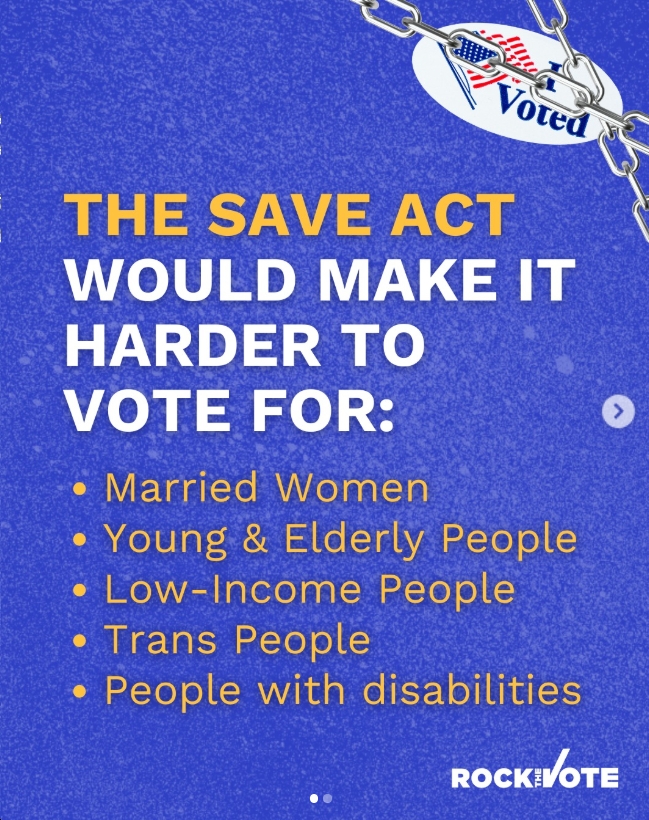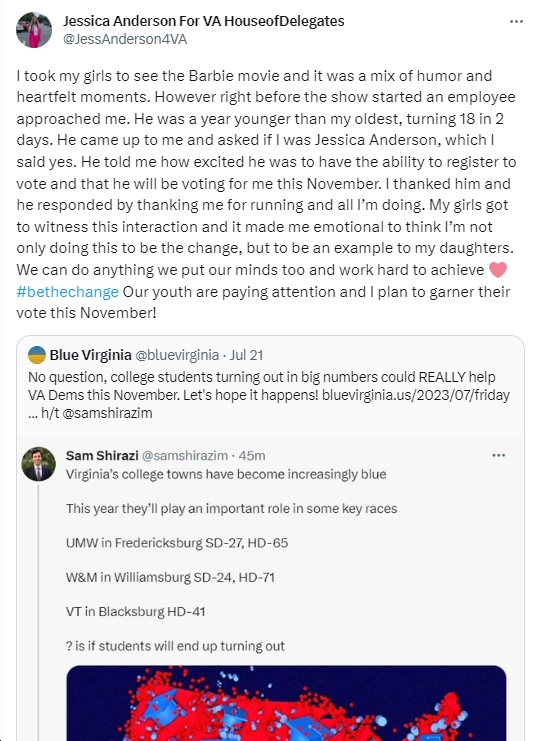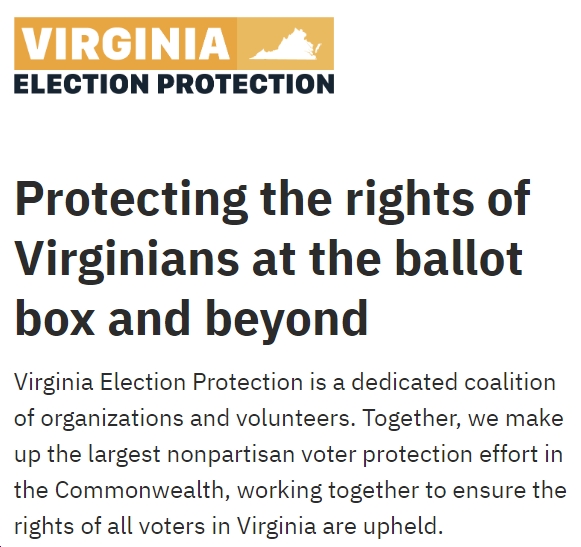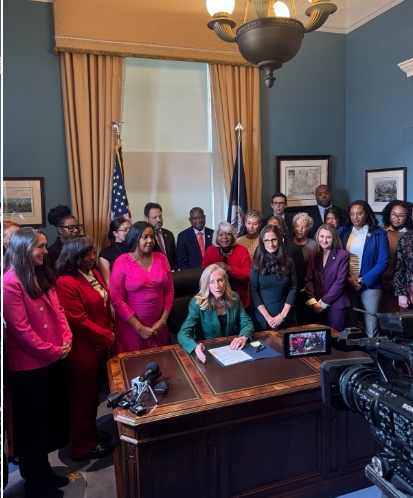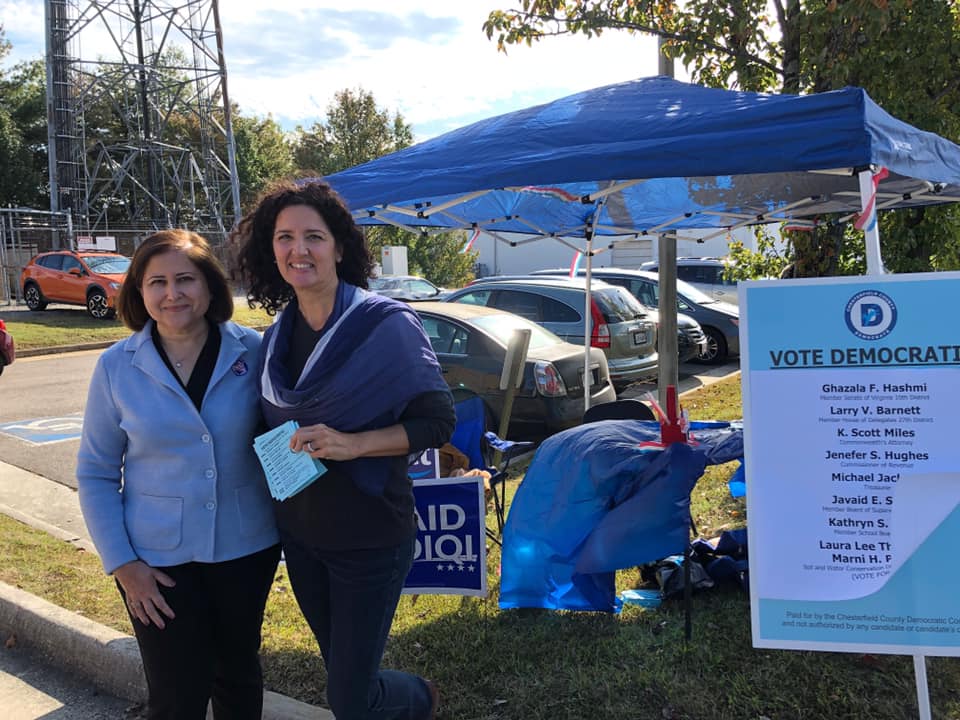For the record, every single Virginia Republican member of the U.S. House voted today against voting rights, while every Democrat of course voted FOR expanding voting rights. Because, let’s face it; Republicans as a party want fewer people, particularly minorities, to vote, while Democrats as a party want MORE people to vote. See below for statements by the Democrats on passage of the Voting Rights Advancement Act, which – as Rep. John Lewis puts it – “responds to the Shelby County v. Holder decision, repairs the Voting Rights Act, and ensures that all Americans can exercise their right to vote.” How could anyone oppose that? They could be a Virginia Republican like Denver Riggleman, Rob Wittman, Ben Cline and Morgan Griffith. Ugh.
McEachin Applauds Passage of the Voting Rights Advancement Act
Washington, D.C. – Congressman A. Donald McEachin (VA-04) issued the following statement after the passage of H.R. 4, the Voting Rights Advancement Act.
“Protecting every citizen’s sacred right to vote is one of Congress’ most important duties,” said Congressman Donald McEachin. “Since the Supreme Court’s disastrous Shelby County v. Holder decision, we have witnessed unprecedented efforts across the country to restrict access to the ballot box, particularly for individuals of color, individuals with disabilities, and the elderly. The Voting Rights Advancement Act would help address this growing crisis by restoring and bolstering key oversight and enforcement provisions of the Voting Rights Act of 1965. By passing this landmark legislation, House Democrats have taken decisive action to help end these harmful, discriminatory practices, and I urge my Senate colleagues to pass this bill immediately.”
*********************
Spanberger Passes Legislation to Defend Virginians Against Unprecedented Efforts to Strip Voting Rights
The Legislation Would Strengthen Our Democratic System by Restoring Voter Protections that Counteract Discriminatory & Suppressive Laws
WASHINGTON, D.C. – U.S. Representative Abigail Spanberger today helped pass legislation to defend Americans against attacks on their fundamental right to make their voices heard at the ballot box.
Across the United States, Americans are facing a pattern of suppressive laws and practices, like the unfair purging of voters from the rolls and the moving or elimination of polling places. These barriers prevent eligible voters from participating in our democratic system, and they disproportionately target minority communities, voters with disabilities, and naturalized citizens. The Voting Rights Advancement Act (VRAA) would work to counteract these incursions by restoring the full force of the Voting Rights Act, renewing protections that were gutted by the 2013 Shelby v. Holder Supreme Court decision.
“From our nation’s founding to the Civil Rights movement, Virginians have always stood up to fight for their most foundational right – a voice in our government. That fight continues today, in the face of unprecedented efforts to silence Americans through voter suppression efforts that seek to disenfranchise some people from participating in our democratic system,” said Spanberger. “The right to vote is the bedrock of our system of government, and I’m proud to help pass this legislation to restore vital voter protections, strengthen our democracy, renew faith in our electoral system, and defend each Virginian’s right to be heard.”
Spanberger originally cosponsored the VRAA in March. The legislation would require states and localities with a recent history of voter discrimination to seek federal approval from the U.S. Department of Justice before making any changes to their electoral laws. The legislation would ensure that states like Virginia are required to obtain preclearance for changes to voting practices and procedures. This provision would protect against voter disenfranchisement by ensuring laws are approved and constitutional before going into effect.
The VRAA also includes strengthened protections for Native Americans, naturalized citizens, and voters with disabilities. The bill is led by U.S. Representatives Terri Sewell (D-AL-07), Joaquin Castro (D-TX-20), and Judy Chu (D-CA-27).
The VRAA is endorsed by the NETWORK Lobby for Catholic Social Justice; Leadership Conference on Civil Rights; Lawyers’ Committee for Civil Rights Under Law; Brennan Center for Justice; Human Rights Campaign (HRC); Asian Americans Advancing Justice (AAJC); National Association of Latino Elected Officials (NALEO) Educational Fund; Native American Rights Fund (NARF); National Education Association (NEA); Mexican American Legal Defense and Education Fund (MALDEF); and the NAACP Legal Defense and Educational Fund, Inc.
*************
SCOTT STATEMENT ON HOUSE PASSAGE OF VOTING RIGHTS ADVANCEMENT ACT
WASHINGTON, DC – Congressman Bobby Scott (VA-03) issued the following statement after the House of Representatives passed H.R. 4, the Voting Rights Advancement Act:
“In 1964, the Supreme Court noted in Wesberry v. Saunders, ‘No right is more precious in a free country than that of having a voice in the election of those who make the laws under which, as good citizens, we must live. Other rights, even the most basic, are illusory if the right to vote is undermined.’ While this is certainly true, there is an unfortunate history in our country of blocking access to the ballot box for minorities. For this reason, Congress passed and President Lyndon Johnson signed into law the Voting Rights Act of 1965.
“Today, nearly 55 years after the Voting Rights Act was signed into law, the right to vote has come under attack after the disastrous Shelby County v. Holder Supreme Court decision in 2013. That decision dismantled core provisions of the Voting Rights Act. The Voting Rights Act contains several important provisions; however, the pre-clearance provision in Section 5 is the most important of the law’s protections. Section 5 requires states and jurisdictions with a documented history of discrimination to submit changes to their election laws or procedures to the U.S. Department of Justice for approval. This process is commonly referred to as pre-clearance. After the Shelby decision at least 23 states have enacted newly restrictive statewide voting laws, and most of those changes have been shown to have a disproportionate impact on communities of color.
“The legislation we passed today will restore the full strength of the Voting Rights Act and ensure that all aspects over the law are enforceable. The right to vote is fundamental to our democracy, and Congress has an obligation to ensure all eligible voters have the right to make their voices heard at the ballot box. H.R. 4 helps fulfill that obligation.”
***************
Beyer Votes For Voting Rights Advancement Act
December 6, 2019 (Washington, D.C.) – Rep. Don Beyer (D-VA) today voted for H.R. 4, the Voting Rights Advancement Act, which would restore the full strength of the Voting Rights Act of 1965 following the Supreme Court Shelby v. Holder decision, which paved the way for renewed voter suppression and discrimination. In the wake of the Shelby decision, 23 states enacted voter suppression laws, including voter purges, ID requirements, poll closures and reduced early voting, all of which disproportionately affect voters of color.
“The Voting Rights Advancement Act is a sorely needed reform to stop the attacks on voters which have unfolded in state houses following the terrible Shelby decision,” said Beyer. “The intent of many of these laws was clearly to weaken our democracy by preventing Americans from exercising their lawful right to vote. Justice demands that Congress put an end to attempts to disenfranchise voters based on race using voter restrictions and gerrymandering.”
This legislation to safeguard every eligible American voter’s access to the ballot box has the support of the American Association of University Women, League of Women Voters of the United States, National Education Association, NAACP, The Leadership Conference on Civil and Human Rights, Mexican American Legal Defense and Educational Fund, Asian Americans Advancing Justice, and Native American Rights Fund.
The Voting Rights Advancement Act reestablishes full protections for voters in states with a recent history of discrimination. Among its key provisions, the bill:
- Provides a new coverage formula following the Shelby decision to determine which jurisdictions are subject to preclearance, based on current conditions.
- Establishes “practice-based preclearance,” focusing administrative or judicial review narrowly on suspect practices that are most likely to be tainted by discriminatory intent or to have discriminatory effects, as demonstrated by a broad historical record.
*******************
Wexton Votes to Strengthen Voting Rights, Combat Voter Suppression
Washington, DC — Today, Congresswoman Jennifer Wexton (D-VA) voted to pass the Voting Rights Advancement Act, which will restore the strength of the Voting Rights Act and combat voter discrimination.
“Since Shelby v. Holder, we’ve seen a coordinated effort to implement voter discrimination laws that have taken us backwards. These voter suppression tactics have disenfranchised too many Americans, including in Virginia, disproportionately impacting people of color,” said Congresswoman Jennifer Wexton. “Now more than ever, we need the Voting Rights Advancement Act to strengthen and restore the Voting Rights Act. If we want to ensure the integrity of our democracy, then every American needs to have fair and equal access to the ballot box.”
“Voting is personal to me, not only because I represent America’s Civil Rights District—but because it was on the streets of my hometown, Selma, Alabama, that foot soldiers shed their blood on the Edmund Pettus Bridge so that all Americans—regardless of race—could vote!” New Democrat Coalition Vice Chair Terri Sewell said. “I am so proud that, today, the House took critical steps in addressing the Supreme Court’s Shelby decision and passed H.R. 4, the Voting Rights Advancement Act, to restore the Voting Rights Act of 1965 to its full strength.”
“No American seeking access to the ballot box should be subject to voter discrimination or suppression,” said Pastor Michelle Thomas, President of the Loudoun NAACP. “It’s vital we strengthen our commitment to ensuring every voter’s voice be heard in our democracy. I applaud the passage of this important legislation and thank Congresswoman Wexton for her fierce advocacy of voting rights.”
The Voting Rights Advancement Act, introduced by Congresswoman Terri Sewell (D-AL), directly addresses issues raised by the Supreme Court in its 2013 Shelby County v. Holder ruling that struck down Section 4(b) of the historic Voting Rights Act of 1965. This provision outlined the qualifications used to determine which states must preclear their election changes with the Department of Justice. Since the Court’s decision, a rush of voter suppression laws have been passed by states across the country, including voter ID laws here in Virginia, restrictions that have been found to disproportionately impact people of color. These restrictive laws contributed to Virginia being named the second-hardest state in which to vote in 2018.
The bill develops a process to determine which states and localities with a recent history of voting rights violations must preclear election changes with the Department of Justice. The legislation will require a practice-based preclearance for known discriminatory practices such as inadequate multilingual voting materials, reductions in polling locations, or the creation of at-large districts. Provisions in the bill will also increase election transparency by requiring reasonable public notice for any voting changes.
The full text of the bill can be found here.

